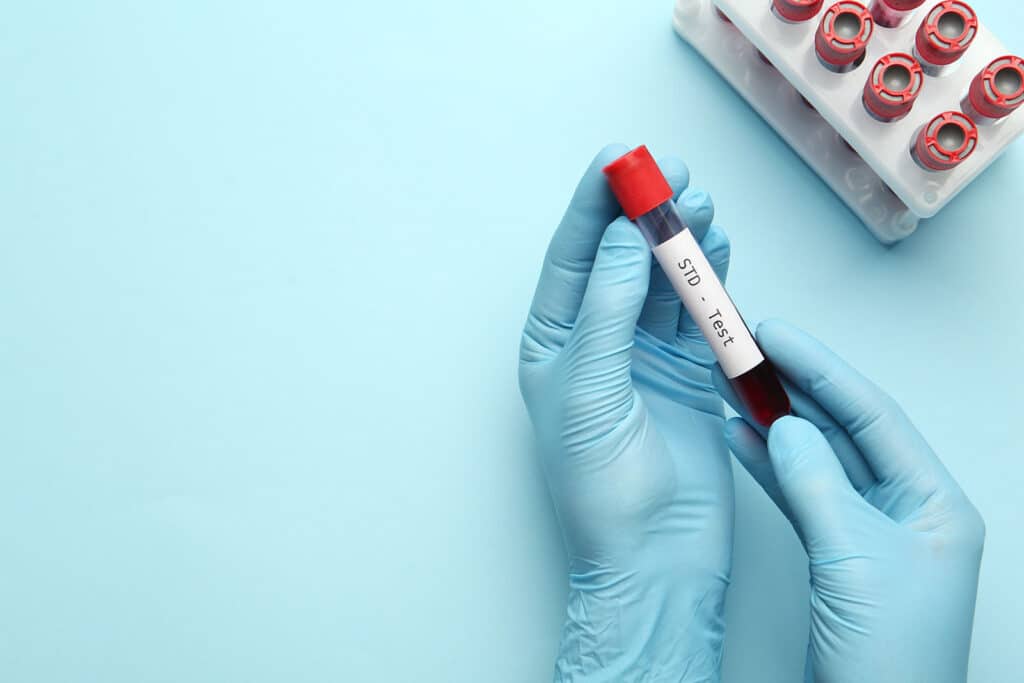When it comes to sexual health, many people are understandably concerned about sexually transmitted infections (STIs) and sexually transmitted diseases (STDs). A common question is whether a routine blood test can detect STDs. The short answer is that while some STDs can be detected through blood work, not all are typically identified in a standard blood panel. Let’s dive deeper into what a “normal” blood test includes and what you should know about STI testing.
Table of Contents
What is a Normal Blood Test?
A routine or normal blood test usually refers to a standard set of tests that doctors order to evaluate your general health. This typically includes:
- Complete Blood Count (CBC): Measures red and white blood cells, hemoglobin, and other components.
- Basic Metabolic Panel (BMP): Checks glucose, calcium, electrolytes, and kidney function.
- Lipid Panel: Assesses cholesterol and triglyceride levels.
- Liver Function Tests: Evaluates liver enzymes and proteins for liver health.
These tests are essential for monitoring overall health but are not designed to detect infections or conditions specifically related to sexual activity, including STIs or STDs.

Can Normal Blood Tests Detect STDs?
No, standard blood tests do not typically detect STDs. STI testing requires specific blood tests or other testing methods. Some STDs, such as HIV, syphilis, and hepatitis B and C, can be detected through targeted blood tests, but these tests must be specifically ordered by your healthcare professional.
- HIV (Human Immunodeficiency Virus): Blood tests can detect HIV antibodies or antigens.
- Syphilis: A blood test can check for antibodies against Treponema pallidum (the bacterium causing syphilis).
- Hepatitis B and C: These viral infections are detectable through blood tests, identifying antibodies or viral antigens.
How Are Other STDs Diagnosed?
Other common STDs like chlamydia, gonorrhea, trichomoniasis, and human papillomavirus (HPV), including genital warts, are usually diagnosed through different testing methods:
- Urine Tests: Used for detecting infections like chlamydia and gonorrhea.
- Swab Tests: Samples from the genitals, throat, or rectum may be taken for STD screening, including herpes simplex virus (HSV), trichomoniasis, or HPV.
- Pap Smear: This test can screen for cervical changes caused by HPV, which can lead to cervical cancer.
- Physical Examination: Genital herpes can often be diagnosed by visible symptoms, but a swab test can confirm the presence of the herpes simplex virus.
When Should You Get Tested for STDs?
If you’re sexually active, regular STI testing is essential for protecting your sexual health. Consider getting tested if:
- You have new or multiple sexual partners.
- You or your partner show symptoms such as sores, genital warts, unusual discharge, or pain during urination.
- You’ve had unprotected sexual contact.
- You are at higher risk of certain infections, such as HIV or hepatitis C.
False-Negatives and Early Detection
It’s important to know that some STDs, like HSV or HIV, may have a window period in which the infection won’t show up in early testing, leading to a false-negative result. Testing at the right time ensures accurate results and the ability to begin appropriate treatment as needed.
Conclusion
While normal blood tests are important for overall health monitoring, they do not typically detect STDs or other sexually transmitted infections. For early detection and accurate diagnosis of STDs, specific test kits, swabs, or blood work targeted for particular infections are necessary. Always have open conversations with your healthcare provider about your sexual health, and request STD screening if needed.
Published on: 2024-08-09
Updated on: 2025-02-19



